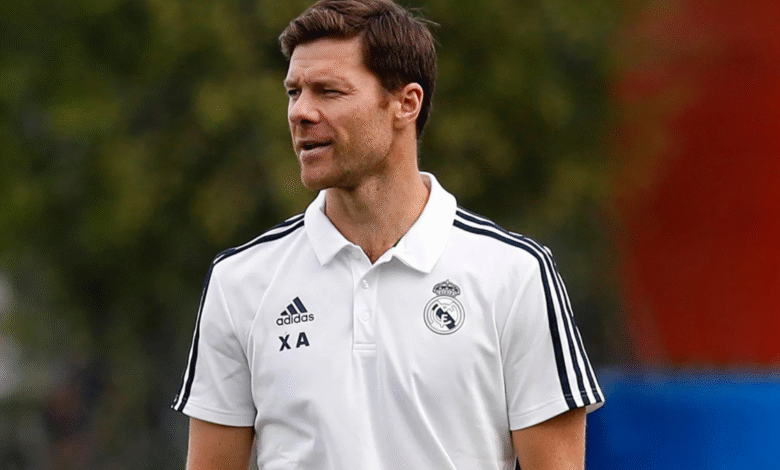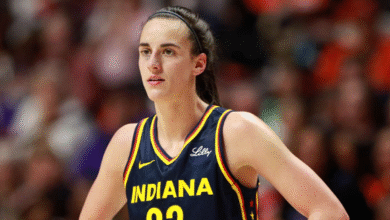Xabi Alonso: The Elegant Midfield Maestro Who Became a Mastermind on the Sidelines

Discover the incredible journey of Xabi Alonso, from a graceful midfield maestro to one of the most exciting managers in modern football. Explore his legacy, career, and philosophy in-depth.
Early Life and Football Roots
Born in Tolosa, Spain, Xabi Alonso grew up surrounded by football. It was more than just a sport in the Alonso household—it was a way of life. His father, Periko Alonso, was a professional footballer who played for Real Sociedad and FC Barcelona. It’s no surprise then that young Xabi found himself drawn to the pitch from a very early age.
From playing barefoot on the streets of San Sebastián to joining the youth ranks at Antiguoko, Xabi’s talent was always apparent. Even as a child, he had a calmness on the ball and a vision that set him apart from his peers. This innate understanding of the game laid the foundation for what would become an illustrious career.
Rise to Prominence at Real Sociedad
Xabi Alonso’s professional journey truly began at Real Sociedad, the club where his father once played. He made his debut for the first team in 1999, and while he had a short loan spell at Eibar, his real breakthrough came under John Toshack. The Welsh manager made a bold decision to hand the young Alonso the captain’s armband—a decision that would change the trajectory of his career.
As captain, Alonso displayed remarkable maturity and leadership. He orchestrated the midfield with precision and poise, leading Real Sociedad to a stunning second-place finish in La Liga in the 2002-03 season. It was during this campaign that the footballing world began to truly take notice of Xabi Alonso’s special talent.
Liverpool and the Birth of a Legend
In 2004, Alonso made a high-profile move to Liverpool under Rafa Benítez. This transfer would not only elevate his profile but also bring him into one of the most storied footballing environments in Europe. His arrival coincided with a transitional period at the club, and Alonso quickly became a fan favorite thanks to his incredible passing range and composure.
Alonso was instrumental in Liverpool’s miraculous Champions League triumph in 2005. Who could forget that iconic final in Istanbul? With the Reds trailing AC Milan by three goals at halftime, Alonso played a pivotal role in the comeback. He scored the third goal to level the match, converting the rebound after his penalty was saved. That goal cemented his place in Liverpool folklore.
Beyond that magical night, Alonso’s time at Anfield was filled with moments of brilliance. From his halfway-line goal against Newcastle to his orchestration of Liverpool’s midfield, he left an indelible mark. His partnership with Steven Gerrard was particularly notable, blending Alonso’s finesse with Gerrard’s power.
The Real Madrid Chapter
After five seasons with Liverpool, Alonso joined Real Madrid in 2009. It was a return to Spain, but this time on a much bigger stage. Real Madrid was in the midst of rebuilding, and Alonso’s arrival was part of a star-studded transformation under Florentino Pérez.
At Madrid, Alonso was the metronome in midfield. His tactical awareness, passing accuracy, and ability to dictate tempo made him indispensable. He played a crucial role in Jose Mourinho’s system, helping Madrid end Barcelona’s domestic dominance by winning La Liga in the 2011-12 season.
Perhaps the crowning moment of his Madrid tenure was the club’s long-awaited tenth European Cup—La Decima—in 2014. Although he missed the final due to suspension, his contributions in the earlier rounds were instrumental. His professionalism and leadership qualities were admired by teammates and fans alike.
Final Playing Years at Bayern Munich
In 2014, Alonso made a surprising move to Bayern Munich. Despite being in the twilight of his career, he showed no signs of slowing down. Under Pep Guardiola, Alonso’s intelligence and ball control were emphasized even more. He adapted seamlessly to the Bundesliga and quickly became a key figure in Bayern’s midfield.
His experience proved invaluable, both on and off the pitch. Younger players looked up to him, and his influence extended beyond just matches. Alonso added multiple league titles to his resume in Germany and continued to perform at an elite level until his retirement in 2017. His final season was a celebration of an extraordinary career, capped with grace and dignity.
Style of Play and Tactical Genius
Xabi Alonso was never the fastest player, nor the most physically dominant, but what he lacked in athleticism, he more than made up for with his brain. He was a deep-lying playmaker, often dictating games with his vision, spatial awareness, and passing ability.
Alonso’s long passes were often compared to quarterback throws—pinpoint and precise. He could switch the play effortlessly, thread balls between the lines, and even score from distance. More importantly, he had a calming influence. He controlled the tempo and provided structure.
Defensively, he was astute. Alonso understood positioning and knew when to intercept or press. His intelligence allowed him to read the game several steps ahead, making him a complete midfielder. He wasn’t flashy; he was effective—and that’s what made him great.
International Success with Spain
Alonso’s international career is often overshadowed by the abundance of talent in Spain’s golden generation. But make no mistake, he was a vital cog in the machine that dominated world football between 2008 and 2012.
He won two European Championships and a World Cup with Spain. Alonso was part of the midfield that included Xavi, Iniesta, Busquets, and Fabregas—an ensemble that redefined how football was played. He offered balance and defensive solidity, allowing others to push forward.
His contributions were especially noted during the 2010 World Cup, where he was instrumental in Spain’s ball retention and transitions. He wasn’t the flashiest, but his role was crucial. His presence gave Spain stability, and his performances were consistently top-tier.
Transition Into Management
Upon retiring, Alonso took a break from the spotlight—but not for long. He always had a tactical mind, and it wasn’t surprising when he began his coaching badges. He started coaching at Real Madrid’s youth setup before taking over Real Sociedad B in 2019.
His managerial approach mirrored his playing style: methodical, balanced, and intelligent. Under his guidance, Real Sociedad B achieved promotion to the Segunda División for the first time in 59 years. That achievement alone was enough to get people talking about Alonso the coach.
In 2022, Alonso took over at Bayer Leverkusen, marking his first senior team managerial role. Expectations were modest, but Alonso exceeded them. He transformed Leverkusen’s playing style, instilled a clear tactical identity, and nurtured young talent with the same grace he once showed as a player.
Tactical Philosophy as a Manager
Alonso’s coaching reflects a blend of influences from his time under managers like Benítez, Mourinho, Ancelotti, and Guardiola. He favors a possession-based game, often utilizing a 3-4-3 or 4-2-3-1 formation. His teams build from the back, press intelligently, and maintain compactness.
He emphasizes verticality—getting the ball forward efficiently but with control. Alonso’s sides play with rhythm, patience, and awareness, traits reminiscent of his own playing style. His man-management has also received praise. Players respond to him, respect him, and learn from his calm, analytical approach.
Xabi Alonso’s Legacy and Influence

Whether as a player or a manager, Xabi Alonso’s impact on football is undeniable. He’s admired for his intelligence, elegance, and humility. Few players have made such a seamless transition from elite footballer to promising coach.
He left a legacy at every club he played for—Real Sociedad, Liverpool, Real Madrid, and Bayern Munich. Fans remember his pinpoint passes, his cool demeanor, and his leadership. Now, as a manager, he’s building a new legacy, one shaped by vision and understanding of the modern game.
Quotes About Xabi Alonso
“He’s one of the best midfielders I’ve ever played with. You can trust him with your life on the pitch.” — Steven Gerrard
“Tactically intelligent, technically superb—Xabi Alonso is a coach in the making.” — Pep Guardiola
“He always played with his head. It’s no surprise he’s become a brilliant manager.” — José Mourinho
Achievements and Honors
| Competition | Club | Titles |
|---|---|---|
| UEFA Champions League | Liverpool, Real Madrid | 2 |
| La Liga | Real Madrid | 1 |
| Bundesliga | Bayern Munich | 3 |
| FA Cup | Liverpool | 1 |
| FIFA World Cup | Spain | 1 |
| UEFA European Championship | Spain | 2 |
FAQs About Xabi Alonso
Who is Xabi Alonso? Xabi Alonso is a former professional footballer from Spain who played as a central midfielder and is now a professional football manager.
Which clubs did Xabi Alonso play for? Alonso played for Real Sociedad, Eibar (loan), Liverpool, Real Madrid, and Bayern Munich.
What is Xabi Alonso known for? He is known for his exceptional passing, tactical intelligence, leadership, and now for his emerging managerial career.
How many Champions League titles does Xabi Alonso have? He has won the UEFA Champions League twice—once with Liverpool in 2005 and once with Real Madrid in 2014.
Is Xabi Alonso a good manager? Yes, Alonso has already proven himself by achieving promotion with Real Sociedad B and significantly improving Bayer Leverkusen’s performance.
Conclusion
Xabi Alonso’s story is one of quiet excellence. He didn’t chase headlines, but he earned respect through performance and professionalism. As a player, he was a tactician in boots. As a manager, he’s showing the same intellect and elegance. Whether in the heart of midfield or on the touchline, Xabi Alonso remains a figure of class, intelligence, and enduring influence in world football.





